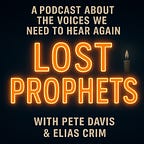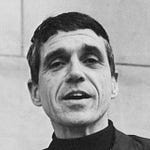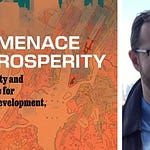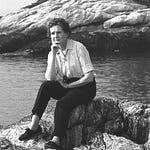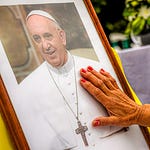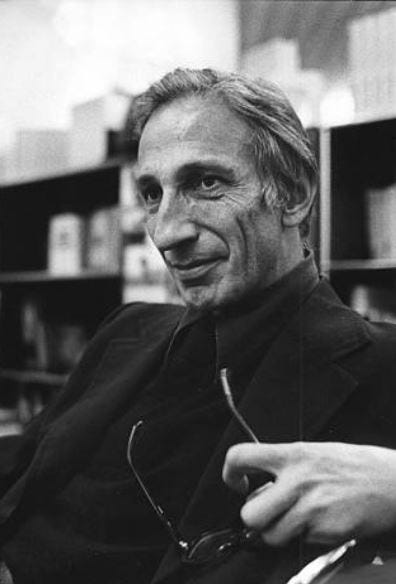
The wonderful essayist George Scialabba once entitled an otherwise generally sympathetic piece on Ivan Illich “Against Everything.” That was surely because Ivan Illich’s critique of modernity runs deeper than that of almost any other thinker of his time. His books attacked the unquestioned sacred cows of the age, including schooling, institutional medicine, cars, and economic development, charging them with “terminal counter-productivity”.
And yet Illich was neither a reactionary nor a Luddite. In the 1960s, his countercultural open seminar in Cuernavaca, Mexico—CIDOC—was partly a seedbed for what became liberation theology (although Illich later found the movement too ideological). His writings about “the war on subsistence,” as he called it, laid the groundwork for today’s global movements around the commons, decentralization, and degrowth.
After his remarkable but controversial Gender appeared in 1982, causing a firestorm around what Illich felt was a misreading of the book by its feminist critics, he pulled back from public speaking and concentrated on less volatile subjects.
In a series of interviews with his friend and biographer David Cayley—who is our guest for this episode—Illich gradually sketched out his somewhat startling theory of modernity as an extension of Church history. The “corruption of Christianity” was the theme he first shared in conversation with Cayley, who went on to transcribe and publish Illich’s account of how so many modern institutions arose out of misplaced ambitions to make Christian charity into permanent institutions of society.
Our conversation in this episode is grounded in Cayley’s Ivan Illich: An Intellectual Journey, a work which not only presents its subject’s ideas but wonderfully extends them, an achievement we surely owe to Cayley’s personal friendship with Illich, especially in his last years.
Some takeaways from our conversation:
The key modern assumption in Illich’s view: that human beings are made up of needs and society is organized to fulfill them. Moreover, modern institutions, as they grow ever larger, tend to defeat their own purposes: they weaken communal self-reliance by creating needs to be serviced by technical professionals; they threaten our ability to enjoy and bear the human condition; and they undermine the arts of suffering and our ability to die our own deaths.
Illich’s idea of subsistence (which is not poverty but simply sustainable living) as the way the global South might continue to avoid the tragedies of industrialization and modernity.
In the mid-1980s, a kind of catastrophic breakdown in the old (tool-based) way of seeing things, replaced by a new dimensionless cybernetic space, discontinuous with the past and the certainties with which people once lived.
“Risk awareness”: to Illich, this was the most important religiously celebrated ideology today.
The vocation of the friend: to Illich, our only hope for a new society, through “little acts of foolish renunciation”.
Timestamps
Introduction to Ivan Illich [00:00:00]
Illich's background and early life [02:08]
Illich's time in New York and Puerto Rico [05:00]
Founding of CIDOC in Cuernavaca, Mexico [10:00]
Illich's critique of modern notions of “development” [15:00]
Illich's "Deschooling Society" and radical monopolies [21:30]
"Tools for Conviviality" and the critique of tools [35:00]
"Medical Nemesis" and its attack on the medical establishment [43:52]
"Gender" and its controversial reception [49:56]
Illich's later works on language and literacy [54:30]
Illich’s theory of “the corruption of Christianity” in the institutions of modernity [1:00:00]
Interview with David Cayley begins, his first encounter with Illich [1:15:08]
Illich's ideas on the incarnation and institutions [1:26:02]
Illich's influence on social movements including the one for the commons [1:41:48]
Cayley's reflections on Illich as a teacher and friend [1:57:30]
The hosts offer final thoughts on Illich's legacy [2:11:15]
Recommended:
Deschooling Society (1971), Ivan Illich
Tools for Conviviality (1973), Ivan Illich
Medical Nemesis (1975), Ivan Illich
Shadow Work (1981), Ivan Illich
Gender, (1983), Ivan Illich
In the Vineyard of the Text (1993), Ivan Illich
ABC: Alphabetization of the Popular Mind (1989), Ivan Illich and Barry Sanders
Ivan Illich in Conversation (1992), David Cayley
Rivers North of the Future: The Testament of Ivan Illich (2005), David Cayley
Ivan Illich: An Intellectual Journey (2023), David Cayley
Many thanks to the great band NOBLE DUST, who provides the music for Lost Prophets. Their latest album A Picture for a Frame is here.
This is the fourth episode of LOST PROPHETS, a podcast about the mid-century voices of solidarity we need to hear again. To listen on your podcast player, our Spotify link is here, Apple Podcasts link is here, and RSS link is here.


